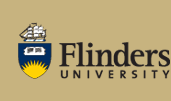
The Master of Teaching (Secondary) is a pre-service teacher education course which requires two years of study (or the equivalent part-time). The course is offered by the Faculty of Education, Humanities and Law.
A Lutheran pathway is available for students wishing to teach in that system. Further information regarding the Lutheran pathway is available from the Lutheran pathway coordinator.
Applicants must have completed an undergraduate degree from the University (other than in education or teaching) or an approved qualification from another approved tertiary institution, and have studied two of the following teaching/curriculum areas:
Currently these are: English, Drama, Mathematics, Information Technology, Modern languages (restricted to Spanish, French, Italian, Japanese, Chinese, Indonesian, German and Modern Greek), Science (Physics, Chemistry, Biology, Earth Science), Visual Arts, History, Geography, Legal Studies, Studies of Societies, Health Education and Physical Education.
Note that in South Australia, to teach to year 10, four undergraduate semester topics in the teaching area are needed; to teach to Year 12, six undergraduate semester topics in the teaching area are needed.
The course aims to produce graduates who:
At completion of this degree students will be able to:
Limited credit may be granted for recognition of prior studies undertaken at the University or other approved tertiary institutions. Further information is available on this page.
To qualify for the Master of Teaching (Secondary), a student must complete 72 units of education studies as set out below, with a grade of P or NGP or better in each topic. The course comprises:
Except with the permission of the Board:
Students should note that teaching practicum topics require full-time commitment for their duration.
36 units comprising:
EDUC3525 Curriculum Specialisation: Middle Years 1 (4.5 units)
EDUC3526 Literacies Across the Curriculum in the Middle and Secondary Years (4.5 units)
EDUC3627 Contemporary Issues in Secondary Schooling (4.5 units)
EDUC9120 Teachers&##39; Work in a Changing World (4.5 units)
EDUC9122 Learning, Development and Teaching - Secondary (4.5 units)
EDUC9220 Relationships for Learning and Teaching (4.5 units)
EDUC9225 Middle Schooling: Theory and Practice (4.5 units)
EDUC9233 Professional Experience 1: Secondary (25 days) (4.5 units)
31.5 units comprising:
EDUC4720 Differentiation for Diverse Learners (Middle and Secondary Schooling) (4.5 units)
EDUC4729 Curriculum Specialisation: Senior Years 1 (4.5 units)
EDUC4742 Professional Experience 2: Middle and Secondary Schooling (40 days) (4.5 units)
EDUC9400 Critical Indigenous Pedagogies (4.5 units)
EDUC9401 The Reflective Professional in Action (4.5 units)
EDUC9404 Numeracy and ICT (4.5 units)
Plus one of
EDUC4727 Curriculum Specialisation: Middle Years 2 (4.5 units) (single major)
EDUC4730 Curriculum Specialisation: Senior Years 2 (4.5 units) (double major)
Plus 4.5 units of #request.oFMSBhv.render(href="/flinders/courses_and_programs_files/documents/courserules/2011EdElelctives.pdf",file_type="pdf",file_name="2011EdElelctives.pdf",file_uuid="36731C9D-CCD2-8BB2-FE09-24073A632192",caption="Education Elelctives.pdf",src="/shadomx/apps/fms/admin/pics/icon_pdf.gif")#
CRICOS Provider: 00114A | Updated: 23 Sep, 2010